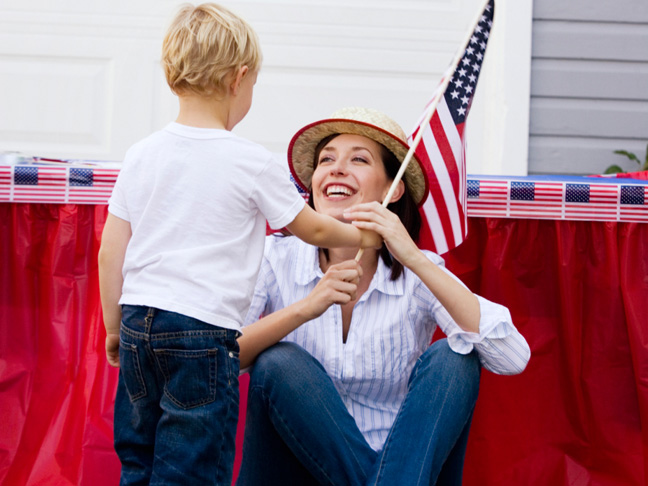“Will there EVER be a girl President?” I’ve been fielding this question for several years now. Years ago, my daughter seemed to ask that question with a tone of shock behind it. She thinks girls are pretty great and it was hard to imagine that such an important job has yet to be given to a woman. At 9-years-old, she’s exploring the idea of inequality. She is surrounded by smart, capable, and inspiring women. If a woman hasn’t made it to the White House yet, she believes, there must be something unfair happening behind the scenes.
I wouldn’t say that we spend a ton of time talking politics in this house, but we do talk about the upcoming presidential election. The truth is that kids echo the political views of their parents. More than once, my children have come home from school upset about negative remarks made about the President during recess. We talk a lot about kindness, respect, and empathy around here, so regardless of political views (which they still can’t fully grasp at ages 9 and 7), it would never occur to them to say something unkind about our President.
Those experiences are a good lesson for parents, though, because the truth is that kids will hear political banter out in the world. If you don’t prepare them for it, they won’t know how to respond.
Kids are surrounded by subtle (and not so subtle) political messages these days. Lawn signs tend to be fairly benign, but bumper stickers can be really confusing. And then there are the nasty political ads that pop up every time you turn on the TV. While it might seem like you should avoid all political talk and advertising to stay away from the negativity that tends to come with it, that’s just not possible. It’s actually better to help kids gain an understanding of the political process and talk about why campaigns sometimes turn angry. I find that little kids actually come up with great solutions to negative politics when we give them the opportunity to learn.
1. Provide a balanced perspective. We all tend to hyper focus on the issues that mean the most to us. That’s natural. When teaching young kids about the voting process, however, it’s important to provide a balanced perspective. While your 5-year-old isn’t likely to understand things like foreign policy and reproductive rights, you can talk about what democracy means and why we go to the polls. It’s important to communicate to our kids that people do have opposing views when it comes to politics, but that we can talk about those views in a respectful manner. We can also agree to disagree without resorting to anger and/or unkind comments.
2. Present your views as your own. The trouble with political talk at home is that kids sometimes feel like that are required to believe what their parents believe. They hear snippets of conversations, internalize those views and values, and repeat them at a later date. When I talk politics with my kids, I’m careful to start each point with, “I believe” or “Something that is important to me is…”
3. Encourage kids to talk about their own views. I like to ask my kids what they think would make our country better. In a recent dinner conversation with them, I said: “If you were the President, what is one thing you would do to make our country better?” My 7-year-old son thought for a moment and responded, “Well, I would make schools and parks better by adding more trees. That would make more shade and make the air fresh.” My daughter, always passionate about helping those less fortunate, replied, “I would make sure that every single person has somewhere to live. No one should be homeless.” Engaging kids in meaningful conversation and giving them the opportunity to present their own views teaches them more about politics than simply commenting on what they see.
4. Stay positive. We are all bombarded by the media’s interpretations of every move each candidate makes. Honestly, I find it difficult to even keep up with the latest political banter these days. While it might seem funny to joke about certain things (like hair styles and mannerisms, for example), this sends the wrong message to kids. We don’t vote for candidates based on their appearance, and teasing someone (even a presidential candidate) based on looks isn’t kind. Resist the urge to make negative comments about candidates and focus on the positive. Talk about what you like about the various candidates and how their ideas might improve our country.
5. Vote on issues in your own home. The best way to learn about the voting process is to be a part of it. Come up with two dinner options for the weekend and then spend the week making signs, presenting speeches about the options, and engaging in healthy debates about the pros and cons of each option. Use your iPhone to make ads promoting your dinner of choice. The night before the big family dinner, set up a voting booth and cast your votes! Kids learn a lot through play and this is a great way to teach lessons in politics without all the negative advertising. Incidentally, I’m voting for cheeseburgers.
More Parenting Advice:
- How to Talk to Your Kids About Scary Things
- Secrets to Raising a Daughter with Leadership Skills
- How to Raise a Kid Who Is Kind to Others
Photo: Getty








